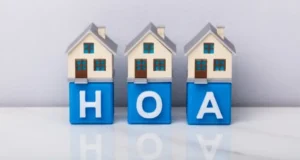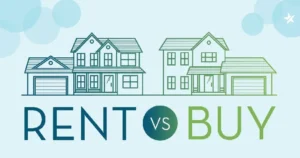When buying a home, one of the most significant financial decisions you’ll make is securing a mortgage. Many buyers assume that the mortgage rate offered by the lender is final, but that’s not the case.
You can negotiate your mortgage rate, potentially saving you thousands of dollars over the life of the loan.
This article covers strategies you can use to negotiate a better mortgage rate, from speaking to multiple lenders to improving your credit score. By understanding the steps and using the right strategies, you’ll be better equipped to secure the best possible deal for your home loan.
Speak to Multiple Lenders
When it comes to negotiating your mortgage rate, the first thing you need to do is speak to multiple lenders. Many buyers make the mistake of accepting the first loan offer they receive because it seems competitive. However, this can often lead to missed opportunities for better deals. Lenders know that most borrowers will shop around, and they typically factor this into the initial offers they give.
Why Shop Around?
- Different Offers: Lenders may offer varying rates, terms, and closing costs, even for the same type of loan.
- Leverage Offers: Having offers from multiple lenders allows you to negotiate better terms. If you find a better rate from one lender, you can use that as leverage when negotiating with others.
- Lender Flexibility: Many lenders are willing to adjust the rate or terms to secure your business, especially if they believe you’re a reliable borrower.
You should aim to get loan estimates from at least three to five different lenders. Compare the interest rates, closing costs, and terms before making a final decision. The differences in offers can often be substantial, so it’s worth taking the time to shop around.
2. Use Loan Estimates to Negotiate a Lower Rate
Once you have several loan estimates in hand, you can use them to negotiate a better mortgage rate. Loan estimates provide a detailed breakdown of the loan’s costs, including the interest rate, monthly payment, closing costs, and other fees. By comparing these loan estimates, you can see if one lender offers a better deal.
How to Use Loan Estimates for Negotiation:
- Present the Best Offer: If you find a loan estimate with better terms, bring it to your preferred lender and ask them to match or beat the rate.
- Focus on Total Costs: Don’t just focus on the interest rate; make sure to compare the overall costs of the loan, including closing costs, lender fees, and other charges.
- Request Concessions: If one lender offers a better rate or fewer fees, ask the lender you prefer if they can match or improve on those terms.
3. Buy Discount Points
Buying discount points is another effective way to lower your mortgage rate. Discount points are upfront fees that you pay to your lender to reduce the interest rate on your loan. One point typically costs 1% of the loan amount and will reduce the interest rate by about 0.25%.
When to Buy Discount Points:
- Long-Term Stay: If you plan to stay in your home for a long period, buying points can be a good way to save money over the life of the loan.
- Low-Interest Environment: If interest rates are currently low, purchasing points may provide substantial savings in the long term.
Advantages of Buying Points:
- Lower Monthly Payments: By reducing your interest rate, your monthly mortgage payment will be lower, freeing up more funds for other financial needs.
- Long-Term Savings: Although you pay for the points upfront, the long-term savings from a lower rate can offset the initial cost.
Before deciding to buy discount points, make sure to calculate the break-even point—this is when the cost of the points equals the savings on your monthly payment. If you plan to sell or refinance before reaching that point, it may not be worth purchasing points.
4. Improve Your Loan Application
Your mortgage rate is not just determined by the market; it also depends on your personal financial situation. The stronger your loan application, the lower the interest rate you’ll be offered. Lenders view strong applicants as less risky, so they are more likely to offer them competitive rates. Here are some key ways to improve your loan application and boost your chances of securing a better rate:
a. Improve Your Credit Score
- Credit Score Impact: Your credit score plays a critical role in determining your mortgage rate. Borrowers with higher credit scores tend to qualify for lower rates because they represent less risk to lenders.
- How to Improve Your Credit Score: Start by paying down high-interest debt, avoiding late payments, and keeping your credit utilization ratio below 30%. Even a small increase in your credit score can result in a lower mortgage rate.
b. Increase Your Down Payment
- Higher Down Payment, Lower Risk: A larger down payment reduces the lender’s risk, which could translate to a better rate. Aim to put down at least 20% to avoid private mortgage insurance (PMI) and to receive a more favorable rate.
- Saving for a Larger Down Payment: Consider saving extra funds for a larger down payment by cutting unnecessary expenses or liquidating non-essential assets.
c. Consider a Co-Signer or Co-Borrower
- Lower Risk for Lenders: Adding a co-signer or co-borrower with strong credit or stable income can reduce your lender’s perceived risk, resulting in a lower interest rate.
- Co-Signer Considerations: Make sure you and your co-signer understand the responsibilities of the loan and how it affects both parties’ credit.
5. Negotiate Closing Costs and Fees
In addition to the mortgage rate, you can also negotiate closing costs, which can save you a significant amount of money. Closing costs include fees for the loan origination, title search, appraisal, inspections, and more. Many of these costs are negotiable, and you can ask the lender to reduce or eliminate some of them.
Ways to Lower Closing Costs:
- Shop Around: Just as you compare mortgage rates, you can also compare lenders’ closing costs. If one lender offers significantly lower closing fees, ask your preferred lender if they can match or beat the offer.
- Ask the Seller to Pay: In some cases, you may be able to negotiate with the home seller to pay a portion of your closing costs, especially if the market favors buyers.
- Look for Lender Credits: Some lenders offer lender credits, where they agree to pay a portion of your closing costs in exchange for a slightly higher mortgage rate. This can be a good option if you’re short on cash for closing but are willing to accept a higher rate.
6. Consider the Loan Type
The type of mortgage loan you choose can also affect your rate. Different loans have different eligibility requirements, terms, and interest rates. For example, government-backed loans such as FHA, VA, and USDA loans typically offer lower rates than conventional loans.
Government-Backed Loans:
- FHA Loans: Best for first-time buyers and those with lower credit scores, FHA loans offer lower rates and smaller down payments.
- VA Loans: Available for veterans and active military personnel, VA loans offer 100% financing and no mortgage insurance, often at lower rates than conventional loans.
- USDA Loans: Designed for buyers in rural areas, USDA loans offer 100% financing with competitive rates and no mortgage insurance.
7. Lock in Your Rate
Once you’ve negotiated the best possible rate, ask your lender to lock it in. A rate lock guarantees the agreed-upon interest rate for a specified period, typically 30 to 60 days, while you finalize the details of the loan. This can protect you from rising rates while you’re in the process of closing.
8. Refinance for Better Rates
If you’ve already locked in a mortgage but rates have dropped since you signed your loan agreement, consider refinancing. Refinancing can help you secure a better interest rate, especially if your credit has improved or if rates have dropped significantly since you initially locked in your loan.
Bottom Line: Negotiating Your Mortgage Rate
Negotiating your mortgage rate is not only possible, but it’s also one of the most effective ways to save money over the life of your loan. By following the steps outlined above—speaking to multiple lenders, using loan estimates to negotiate a better rate, buying discount points, and improving your credit score—you can secure the best possible deal on your mortgage.
Remember, mortgage rates are not set in stone, and there is always room for negotiation. Taking the time to compare offers and work with your lender to reduce costs can result in significant savings in the long run. Don’t hesitate to negotiate terms, and always consider working with a knowledgeable mortgage broker who can help guide you through the process.
















